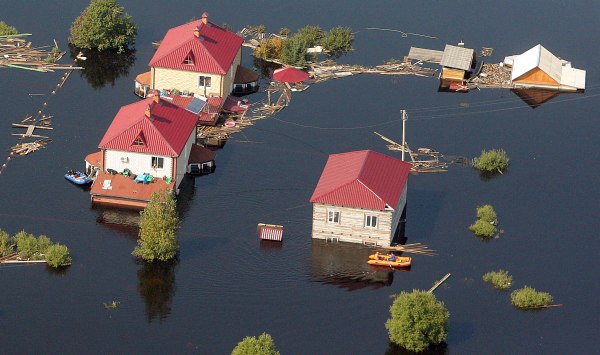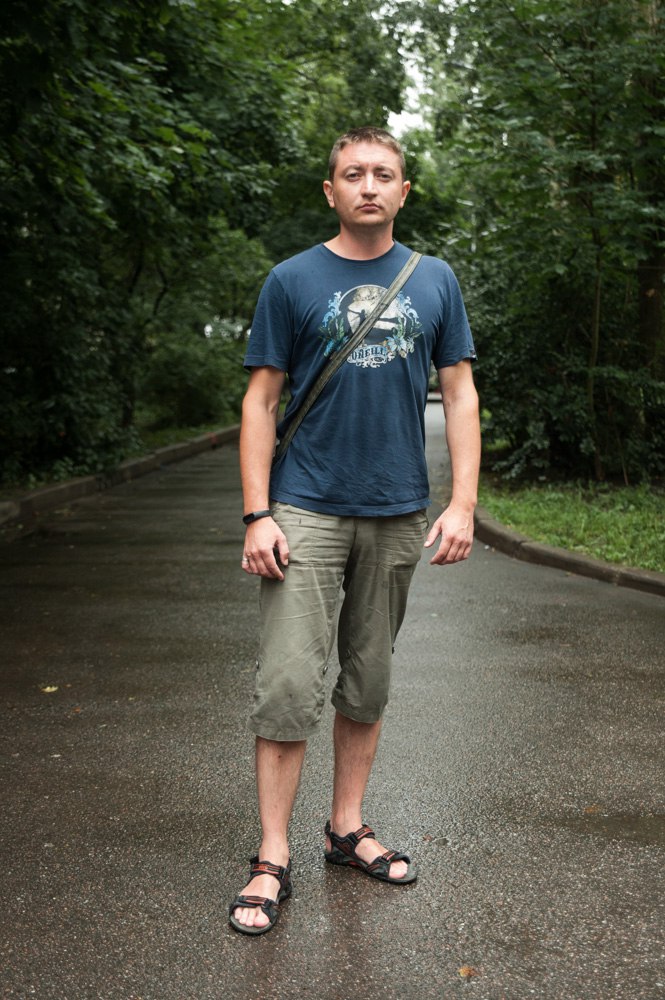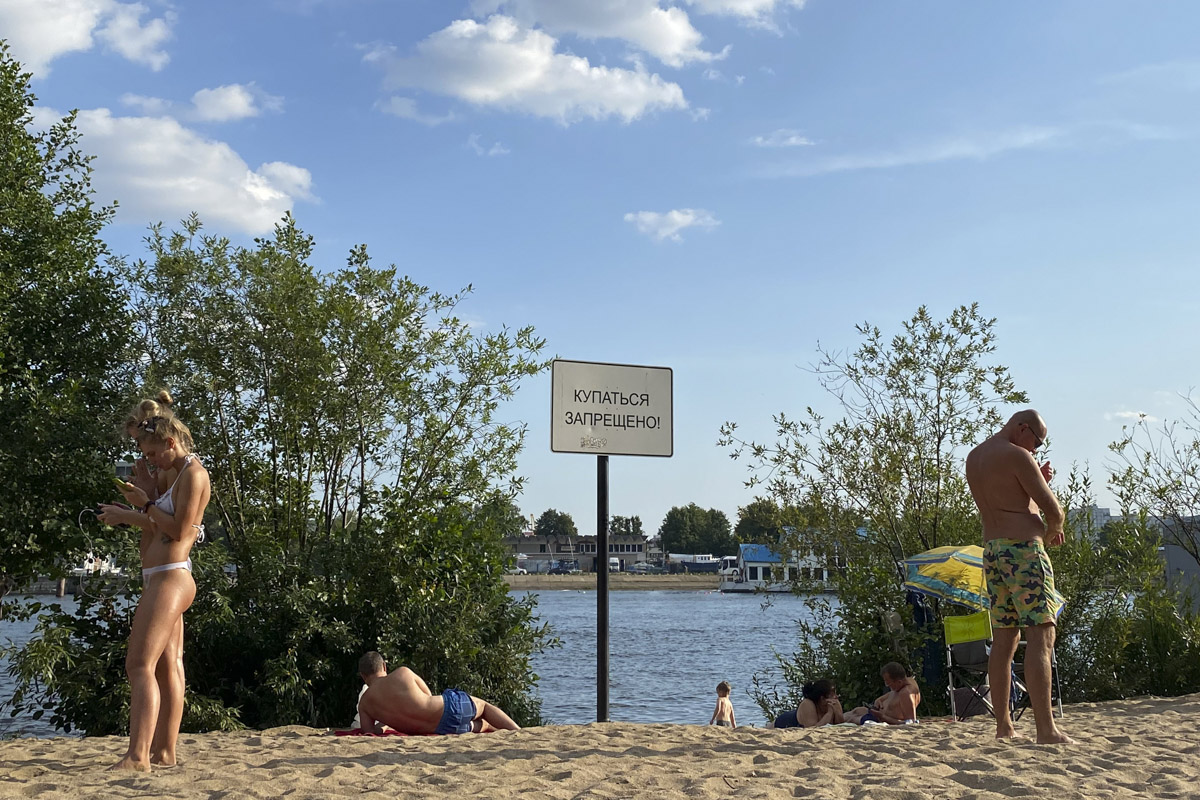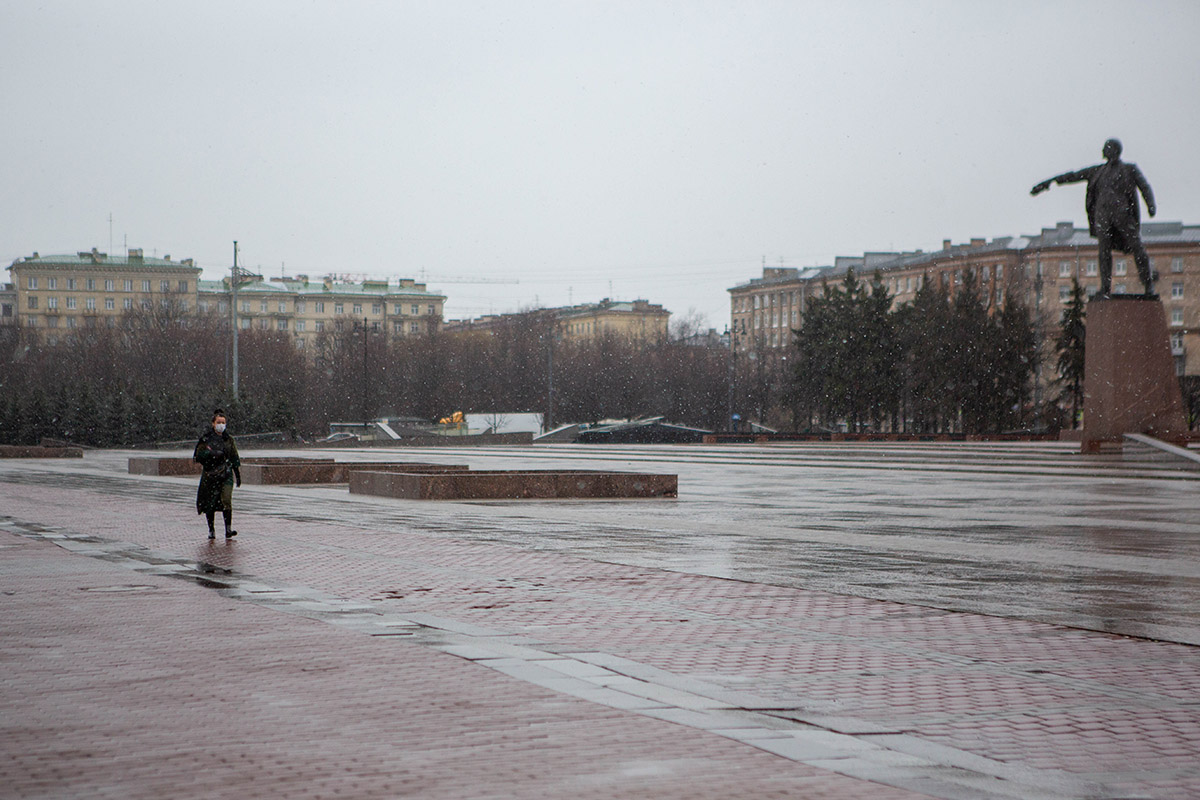Some peculiarities of Russian manual guidance
 Фото: Сергей Мамонтов / РИА-Новости Yuri Trutnev, Russian President’s Far East special representative, claims that a massive flood in most parts of the Far East is declining. The authorities aren’t planning to dismantle dams and reduce money compensations. However, it’s important to remember that active
Фото: Сергей Мамонтов / РИА-Новости Yuri Trutnev, Russian President’s Far East special representative, claims that a massive flood in most parts of the Far East is declining. The authorities aren’t planning to dismantle dams and reduce money compensations. However, it’s important to remember that active
The flood in the Russian Far East is declining. The last wave is now moving from Khabarovsk through Komsomolsk-upon-Amur and is flooding its outskirts. About a dozen of villages have almost drowned around the city. Damage caused by flood is enormous while there is even more work to do ahead. But Vladimir Puchkov, the head of the Russian emergency ministry recons that 11 thousand rescue workers will remain in the region and help cope with the flood’s aftermath. These people will also help local citizens to collect all the sufficient documents in order to claim money compensations for their losses. Life is getting back to normal. And nobody is surprised that it started getting better only after the President got involved in the process.
-According to the President’s decision compensations will not be limited to 50 thousand rubles per family, - Puchkov assured the other day. – Every person will get 10 thousand for miscellaneous needs.
It’s very typical that such simple decisions come only from the President. Will such day arrive when local decisions like this one will be made without the President’s interference?
Will such day arrive when local decisions like this one are made without the President’s interference?
We remind that the flood has started due to heavy rains in Amur River basin (Russian Far East). Amur oblast was the first on the list of suffered regions. Jewish Autonomous Oblast followed Amur. And at the end, Khabarovsky Krai was touched with it. There are 120 thousand suffered citizens of which 20 thousand are children. Dozens of thousands of houses have drowned and more than one thousand social infrastructure buildings faced the same problem.
On August 29th President Vladimir Putin arrived in the Far East. He’s visited an emergency housing for the sufferers where he saw people painting the walls by themselves, starving and showing joy to even scarce porridge. The next day Vladimir Putin announced Victor Ishayev’s dismissal who was the Special Representative in Far East at that time.
The new representative Yuri Trutnev has arrived as a knight in shining armor sent by a kind Czar in order to save the citizens. Now he is the one who solves all the problems of the flooded region. At the same time he is, as usually, not responsible for his predecessor’s actions. So when new information about the authorities’ flaws like not giving compensations to the suffered or refusing to evacuate the citizens airs in public, Trutnev solves the problems right away. But if people start asking questions about the previous one, the guilty representative, the answer comes straight forward: look, he’s been punished… in some way.
But in order to solve the problems of the Far East the President had to issue a new decree called “On the measures taken to liquidate the aftermath of massive flood etc” dated Spetember 1st 2013. There are 12 articles in this decree each containing various paragraphs. It describes literally everything: how to make the flood decline, how to compensate people their losses. It also puts the representative in charge and describes his personal responsibility and it even describes the ways of reconstructing electricity lines and social infrastructure.
The new decree is nothing but another act of manual control. It reminds the local authorities: “Big Brother is watching You. Beware, you, the Representative and Co”.
At the same time all these numerous paragraphs of the decree are just duplicating existing legislature. In fact, it’s not the first flood in Russia so the laws describing sufficient actions and rights already exist. It’s still hard to forget the recent flood in Krymsk. Therefore there are special laws on such matter: Federal statute #68 “On matters regarding protection of people and territories in case of emergency situations”, Ministry of Healthcare Act #325 “On matters of psychological and psychiatric treatment of citizens in case of emergency”, numerous acts regarding cooperation between ministries of healthcare, inner affairs, emergency situations, Federal Security Agency and many, many more. In this context the new decree is just another act of manual control. It reminds the local authorities: “Big Brother is watching You. Beware, you, the Representative and Co”. Putin also acknowledges the fact that Russian authorities simply don’t work without his direct control.
- Sometimes the system functions in routine mode but when it flaws one must turn manual control on, - the President said in his interview to American journalists prior to G20 summit. – When I was flying in a helicopter there, it felt like there was a sea under me. The only thing that was bringing me back to our wicked soil, were the decks sticking out of the water. I felt the horror of that whole situation.
Putin has also added that he “didn’t come to stamp one’s foot, yell at people and fire everyone right away” because he knew that people were working hard from the very morning plus there were luckily no fatalities. But maybe it would be right to fire someone except the representative? Maybe not all of them, but yet, people should be responsible for that. Moreover, there are rumors that the flood was only the official trigger for the representative’s dismissal. In very deed he hasn’t satisfied President’s promises regarding Far East’s development and this was the real cause. A whisper goes round that the representative had zero possibility of satisfying those promises anyway due to a number of circumstances beyond his control. As a result, the representative had a conflict with Khabarovsky Krai’s governor Vyacheslav Shport who is going to be reelected soon so the representative’s dismissal was only a matter of time. Hence the flood and horrible living conditions of the sufferers were just at the right time for his dismissal.
No one in this country can answer a simple question: which people get fired and for what reasons?
This problem can seem to be far away and inexplicit to some in the North-West due to long distance between the two regions. But natural disaster can happen anywhere. Petersburg is, at all, the “hometown of floods”. By the way this week was the anniversary of one of the hardest floods in city’s history: September the 10th 1777 water level in Neva River reached 321 cm. Some experts are sure that putting the topic of flood on Petersburg’s public agenda today is just ridiculous. For instance, Alexander Kolesov, the head of Saint Petersburg weather forecast center, reminds us of the dam which protects the city completely from such disasters and it’s been built entirely for that reason.
However there are experts who don’t share his confidence. For example, the specialists from city architecture modeling institute draw attention to the fact that Petersburg’s dam is designed to hold up to 3 meter water level while it has been up to 7 meters high in Khabarovsk recently. If we imagine that rain of such intensity might happen in our area we can be sure: the city will be not upon but under Neva. And this is where each one of us can feel the peculiarities of manual control in Russia.
Russian authorities’ chaotic behavior concerns everyone except those who receive benefits from it.
No one in this country can answer a simple question: which people get fired and for what reasons? You never know for sure in which situation the person who’s really responsible for poor management is going to be fired. Either the one, who, for instance, has been feeding sufferers with gruel and been making them paint the walls in barracks or maybe he’ll just go chilling out and another person will be called responsible for that. You never know when you can expect the bad fellow’s superiors to be fired too and when not. There are various situations that have no general procedures: in some cases only a representative gets put upon the shelf but in some cases (e.g. Krymsk) all the authorities get fired except, for some reason, the governor of the very region.
And when you don’t know exactly what the actions you can get fired for are, you start thinking that maybe someone else will have to leave. And this feeling gives you full discretion to do what you want.
Chaos is an ideal system for those who don’t want to be responsible for anything.
There is a simple alternative system for manual control: a direct vertical line of management when even a child knows that if the sufferers get fed with gruel those who fed them with it will be fired together with three of their supervisors. And a representative will lose his job for a series of big corruption investigations. There is also a possible system when only the main local boss gets fired for any problem but he must be fired exactly that very moment, not just given a slap on the wrist. Otherwise it is going to be like in a famous “bureaucrat’s song” – “Putin is scary, really scary, I’m afraid of him…”, I’m afraid but I steal, I’m afraid but I idle.
There is an old Russian habit to write a letter to the Father-Czar in any case. People can only rely on writing to him because nobody is afraid of anyone else. Our laws don’t make people feel afraid because they’re optionally executed. Law enforcers are just people with overweight problems and foggy looks. Court employees are just little patsies and one can say nothing about the bureaucrats except the fact that the word government employee itself has become a profanity.
This whole coalition of inoffensiveness receives benefits from its own poor condition. Chaos is an ideal system for those who don’t want to be responsible for anything. This mess is also advantageous for those who are supposed to control it all from up there. Turning manual control and firing somebody is just “fast food” heroism, a quick-fix nice and easy act of bravery for some.
Executing everyday planned reform of management to make it work easily in routine mode is another thing. That’s some healthy political food. It needs tremendous effort though it might not even be mentioned by anyone except the historians who will analyze a sudden rise in Russian people’s well-being in 100 years time.
 Человек города: Риналь, системный администратор, 30 лет
Нужна ли в интернете цензура?
Человек города: Риналь, системный администратор, 30 лет
Нужна ли в интернете цензура?



 Сообщи о важном
Сообщи о важном

